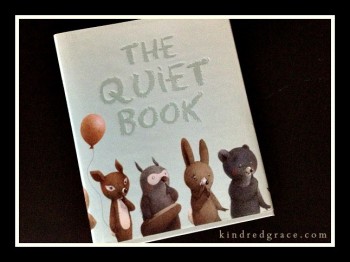A quiet person in a noisy world.
If you are a quiet person in our world full of noise and noisy people, keep calm you are not alone and it is not just you, it is not a bad thing to be quiet. That is who you are, embrace you and be the best you can in your quiet world. Enjoy your quiet self. Quiet is beautiful. Below is a beautiful read by Denise J. Hughes. Happy reading,,,,,,,,,,,,,


But when I read the book Quiet by Susan Cain, I came to understand a wholly new dimension of this introversion-extroversion spectrum. Part of her research re-framed the way I see myself and the way I interact with my extroverted daughter.
The small bell on the door announces the arrival of more guests. The store resembles a living room — with cushions on the floor for reading and toys in a basket for playing. This humble bookstore boasts the charm of a private enterprise. It’s the kind of bookstore I love most.
My children are accustomed to our monthly visits, and they know to use our library-quiet voices when we’re here. So my youngest daughter tugs on my shirt with enthusiasm to garner my attention.
“Mom,” she whispers, “I found your book.”
I look down to see her holding a book with the title softly etched in the same tone: The Quiet Book.
I smile at how well my kids know me. They know I like the quiet. The television in our home is never on if nobody is watching it. I don’t like the background noise. They know not to yell from another room. If they want to talk, they need to enter the same room I’m in and speak in a normal voice. They know I don’t go to restaurants that are especially loud. I prefer to enjoy a meal in a calm atmosphere.
I’m a quiet person.
So it’s no surprise I’m an introvert. Completely.
For almost two decades now, I’ve studied temperaments and Personality assessment , strengths and spiritual gifts . I’ve consumed every book I can find on these topics. And until last year, I would have presumed that I understood pretty much “everything” there is to know about introversion and extroversion.
- Introverts recharge their “emotional battery” by spending thoughtful time alone.
- Extroverts recharge by engaging with people.
- Introverts can appear shy or aloof.
- Extroverts are often seen as friendly and outgoing.
- Introverts tend work slowly and methodically on one task at a time.
- Extroverts flourish in quick-paced environments where multi-tasking is a virtue.
- Introverts prefer to mull over their words before speaking, and they’re sometimes at a loss for words.
- Extroverts enjoy spontaneous conversation, and they’re rarely at a loss for words.
- Many introverts prefer to express themselves in writing.
- Many extroverts are comfortable with giving impromptu speeches.
While I understand that most generalizations will have some exceptions, I can relate to these descriptions of an introvert. And as the mother of a highly extroverted daughter, I can testify to the descriptions that are often associated with extroversion.

But when I read the book Quiet by Susan Cain, I came to understand a wholly new dimension of this introversion-extroversion spectrum. Part of her research re-framed the way I see myself and the way I interact with my extroverted daughter.
Cain says that “introverts and extroverts differ in the level of outside stimulation that they need to function well.” She reports a longitudinal study conducted by developmental psychologists at Harvard where 500 infants were evaluated at four months of age to determine if they would become introverted or extroverted. In this study, the babies were placed in safe environments where they were exposed to varying degrees of stimulation via sights (colorful lights), sounds, and smells.
In this highly stimulated environment, some babies remained rather calm. They exuded a natural ease amongst the noise and commotion. Other babies, however, flapped their arms and demonstrated obvious signs of agitation in response to the noise and commotion.
Years later, these babies were interviewed as adults. As predicted, most of the low-reactive babies — the ones who were quite comfortable in a highly stimulated environment — became extroverted adults. And most of the high-reactive babies — the ones who appeared least comfortable in a highly stimulated environment — became introverted adults.
This study fascinated me as it suggests something of a physiological contribution to the eventual standing on the introversion-extroversion spectrum. As an introvert, there may very well be a logical, scientific explanation for why I prefer quieter environments. It’s not just a “personality thing.”
Besides preferring the quiet, I don’t enjoy strong smells. I’m not fond of most perfumes. And I’m sensitive to bright light as well. I live in the sunny state of California, and I rarely ever step outside without a pair of sunglasses. Basically, I enjoy subtle scents, gentle sounds and soft lights.
As the parent of an extroverted daughter, however, I’ve also come to realize her need for more stimulation. Our home — by my design — is quiet. But she thrives on stimulation. She loves to have music playing in the background, yes, even while doing her homework. And for the longest time, I could never understand it.
She likes to talk on the phone with friends.
She likes to wear clothes with bright colors.
She likes to cook meals with new flavors.
And now, I get it.
So I’ve learned to provide and allow for this “extra stimulation” at certain times of the day. I’ve also been able to explain to my daughter why Mom likes the quiet. Together, we have a much better understanding of who we are as two very different people with very different needs, yet we’re still as close as a mother and daughter can be.
I’m a quiet person in a noisy world, and sometimes a noisy family, and I’ve learned to be at peace with that.




Comments
Post a Comment